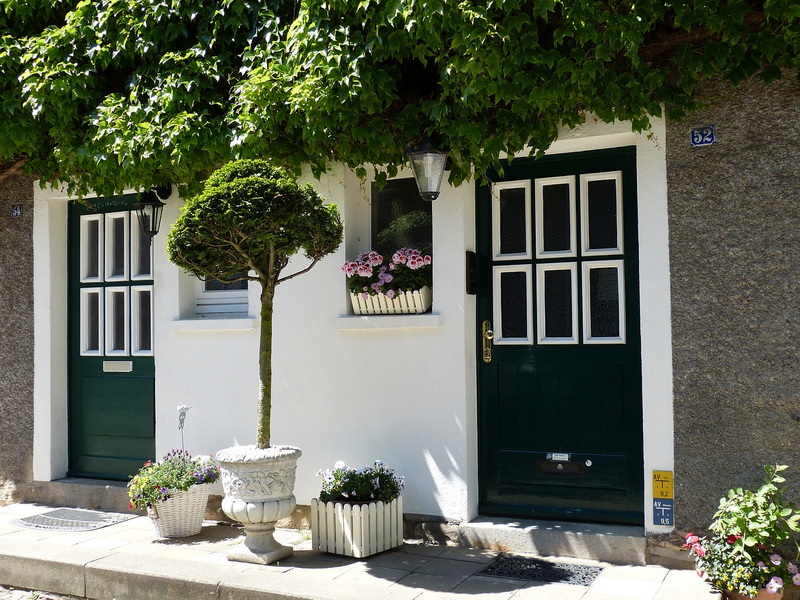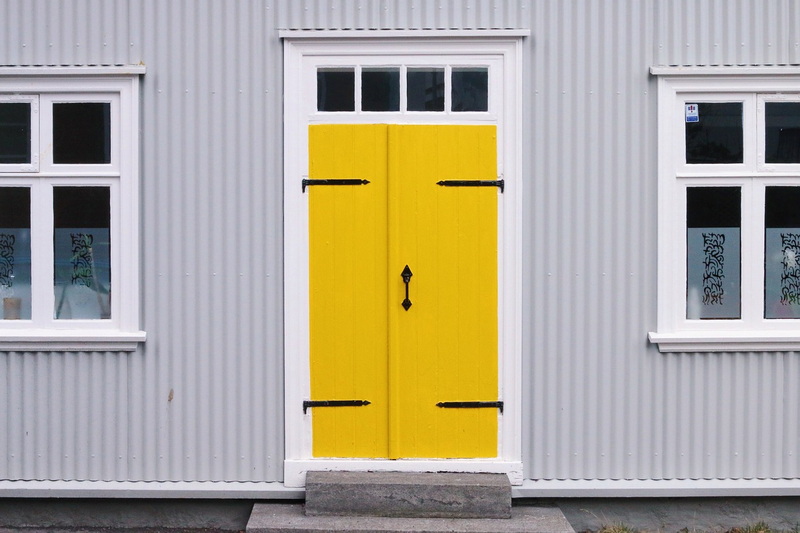English 




Views: 222 Author: Astin Publish Time: 2025-01-07 Origin: Site



Content Menu
● Understanding the Benefits of Painting Your Garage Door
● Step-by-Step Guide to Painting Your Aluminum Garage Door
>> 1. Preparing Your Garage Door
>> 3. Choosing the Right Paint
>> 4. Painting the Garage Door
● FAQ
>> 1. Can I paint my aluminum garage door without removing it?
>> 2. How long will the paint last on my garage door?
>> 3. What type of paint should I use?
>> 4. Do I need to use primer?
>> 5. How can I achieve a more realistic wood grain effect?
Transforming your aluminum garage door into a stunning wood-like finish is an excellent way to enhance your home's curb appeal without the expense of a new door. This guide will take you through the entire process, from preparation to finishing touches, ensuring you achieve a beautiful faux wood effect.

Painting your aluminum garage door not only improves its aesthetic appeal but also offers several practical benefits:
- Cost-Effective: Painting is significantly less expensive than replacing the door entirely.
- Durability: A fresh coat of paint can protect your door from the elements, preventing rust and corrosion.
- Customization: You can choose colors and finishes that complement your home's exterior.
- Increased Property Value: A well-maintained and visually appealing garage door can enhance the overall value of your property.
- Personal Expression: Painting allows you to express your personal style and make your home stand out in the neighborhood.
Before starting, gather all necessary materials:
- Cleaning Supplies: Mild detergent, degreaser, scrub brush, water
- Sanding Tools: Sandpaper or a wire brush
- Primer: Oil-based primer suitable for metal
- Paint: High-quality exterior-grade paint (oil-based or acrylic)
- Glazing Medium: For achieving a wood-like finish
- Brushes and Rollers: For applying paint and primer
- Drop Cloths and Painter's Tape: To protect surrounding areas
- Wood-Graining Tools: Such as combs or brushes designed for creating texture
Preparation is crucial for achieving a smooth finish. Follow these steps:
- Clean the Surface: Use a mixture of mild detergent and water to scrub the door thoroughly. Remove any dirt, grease, or loose paint. Rinse with clean water and allow it to dry completely.
- Inspect for Damage: Check for dents, scratches, or rust spots. Address any significant damage before proceeding.
- Sand the Surface: Lightly sand the door to create a rough texture that helps the primer adhere better. Pay special attention to any areas with rust or corrosion.
- Repair Damages: Fill any cracks or holes with caulk and allow it to dry completely before proceeding. For larger dents, consider using body filler for a smoother finish.
Priming is essential for ensuring the longevity of your paint job:
- Apply Primer: Use an oil-based primer designed for metal surfaces. Apply an even coat over the entire door using a roller for large areas and a brush for detailed sections.
- Drying Time: Allow the primer to dry completely according to the manufacturer's instructions, typically around 24 hours. Ensure that you are working in a well-ventilated area during this process.
Selecting the right paint is vital for achieving a wood-like appearance:
- Type of Paint: Choose high-quality exterior-grade paint that is suitable for metal surfaces. Oil-based paints often provide better durability and finish.
- Color Selection: For a wood-like finish, start with a base color that mimics the undertone of wood (such as yellow or light brown). Consider using samples to test how different colors look in various lighting conditions.
Now comes the fun part—painting!
- Base Coat Application: Apply one or two coats of your chosen base color using a roller. Allow adequate drying time between coats, usually about 4–6 hours depending on humidity and temperature.
- Creating the Wood Effect:
- Mix brown paint with a glazing medium to create a translucent finish.
- Working in sections, apply this mixture using horizontal strokes.
- Use a wood-graining tool or a whisk broom to create texture that mimics wood grain patterns. Experiment with different tools to find what works best for you.
Once you are satisfied with the wood effect:
- Final Coat: If desired, apply a clear sealant over your painted surface to protect it from weathering and enhance durability. A polyurethane sealant can provide additional protection against UV rays and moisture.
- Cleanup: Remove painter's tape carefully and clean up any spills or drips immediately. Dispose of any leftover materials according to local regulations.
- Always work in sections to prevent paint from drying before you can manipulate it.
- Choose days with mild temperatures and low humidity for optimal drying conditions.
- Be patient; allow each coat ample time to dry before applying subsequent layers.
- If you're unsure about colors or techniques, practice on scrap pieces of aluminum or cardboard first.

To ensure your newly painted garage door maintains its beauty over time:
- Regular Cleaning: Clean your garage door regularly with mild soap and water to remove dirt and grime that can accumulate.
- Inspect Periodically: Check for signs of wear or damage every few months. Touch up any areas as needed to prevent larger issues down the line.
- Reapply Sealant as Needed: Depending on exposure to weather conditions, consider reapplying sealant every few years for ongoing protection.
Painting your aluminum garage door to look like wood is a rewarding DIY project that can dramatically enhance your home's exterior. With careful preparation, quality materials, and attention to detail, you can achieve stunning results that will impress neighbors and visitors alike. This project not only revitalizes an old garage door but also adds value and charm to your home while allowing you to express your personal style creatively.

Yes, you can paint your aluminum garage door while it's still installed. Just ensure you protect surrounding areas with drop cloths and painter's tape.
With proper preparation and quality materials, painted garage doors can last anywhere from 5 to 10 years before needing another coat.
Use high-quality exterior-grade paint specifically designed for metal surfaces, such as oil-based or acrylic paints.
Yes, using a primer is crucial as it helps the paint adhere better and provides protection against rust and corrosion.
Using a glaze mixed with paint applied in thin layers while manipulating it with tools like whisk brooms or graining tools will help create a more realistic wood grain appearance.
[1] https://southernyankeediy.com/projects/diy-decor/how-to-paint-a-metal-door-to-look-like-wood/
[2] https://crazylifewithlittles.com/faux-wood-garage-door/
[3] https://www.aaronsgaragedoorcompany.com/can-you-paint-aluminum-garage-doors-heres-what-you-need-to-know/
[4] https://inmyownstyle.com/diy-garage-door-painting-ideas.html
[5] https://powellgaragedoors.com/how-to-paint-aluminum-garage-door/
[6] https://www.angi.com/articles/how-to-paint-garage-door-to-look-like-wood.htm
[7] https://www.a1aoverheaddoors.com/how-to-prepare-and-paint-your-garage-door/
[8] https://www.youtube.com/watch?v=mSLCUD_p4nw
[9] https://www.youtube.com/watch?v=H3jGSQ4Qjf4
[10] https://funhomebuilding.com/8-diy-tips-for-painting-garage-door-to-look-like-wood/
Top Aluminum Furnitures Manufacturers and Suppliers in Czech Republic
Top Aluminum Furnitures Manufacturers and Suppliers in Poland
Top Aluminum Furnitures Manufacturers and Suppliers in Belgium
Top Aluminum Furnitures Manufacturers and Suppliers in Finland
Top Aluminum Furnitures Manufacturers and Suppliers in Denmark
Top Aluminum Furnitures Manufacturers and Suppliers in Greece
Top Aluminum Furnitures Manufacturers and Suppliers in Portugal
Top Aluminum Furnitures Manufacturers and Suppliers in Austria
Top Aluminum Furnitures Manufacturers and Suppliers in Norway
Top Aluminum Furnitures Manufacturers and Suppliers in Sweden
